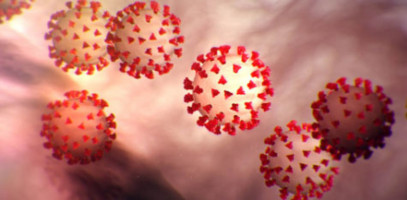
Among patients with lung and other thoracic cancers also diagnosed with COVID-19, prior use of chemotherapy — alone or in combination with other treatments — was associated with increased risk of death, according to an analysis to be presented as part of the virtual scientific program of the 2020 American Society of Clinical Oncology (ASCO) Annual Meeting.
The data come from the Thoracic cancERs international coVid 19 cOLlaboraTion (TERAVOLT) registry and are the most recent available.
“A number of factors — pre-existing lung damage, smoking status, advanced age, and comorbidities — make patients with thoracic cancers especially vulnerable to COVID-19. There are a lot of questions right now, and not a lot of answers. These findings give us some insights into outcomes for patients with cancer who develop COVID-19,” said ASCO President Howard A. Burris III, MD, FACP, FASCO.
“In less than a week we had a study enrolling patients,” said lead author Leora Horn, MD, who is the Ingram Associate Professor of Cancer Research and the Director of the Thoracic Oncology Program at Vanderbilt University Medical Center.
“We have seen clinical trials being funded, approved and begin enrolling patients within weeks, when it can often take months or years to get approval for a trial.”
Only patients treated with chemotherapy (alone or in combination with other therapies) within 3 months of COVID-19 diagnosis had a significantly increased risk (64%) of dying from the virus compared with patients not receiving chemotherapy.
Of the 144 patients who died, 79.4% (112) died due to COVID-19 and 10.6% (15) due to cancer.
Patients with thoracic malignancies, which include lung cancer, mesothelioma, thymic neoplasms, and carcinoid tumours, are considered high risk given their older age, multiple comorbidities and pre-existing lung damage, among other factors.
Treatment with anticoagulants (drugs that prevent blood from clotting) and corticosteroids (drugs that reduce inflammation) prior to COVID-19 were also associated with an increased risk of death.
Concerns have been raised previously by clinicians about the risk of severe acute respiratory syndrome coronavirus 2 (SARS-CoV-2) infection and severity of COVID-19 among those using corticosteroids for chronic disease.
In this study, treatment with corticosteroids prior to infection with the SARS-CoV-2 virus was associated with 1.5 times greater risk of death in patients with thoracic cancer, compared with patients not on corticosteroids, after controlling for a number of other factors.
These findings regarding prior anticoagulant treatment are of interest as well, given published reports of clotting in patients with COVID-19, which have prompted some physicians to recommend anticoagulation prophylaxis in all patients with this disease.
However, there were too few patients for multivariate analysis.
More data will be needed to understand how COVID-19 affects clotting in patients with thoracic cancer.
The type of treatment given specifically for COVID-19 did not appear to affect a patient’s risk of death.
The proportions of patients receiving anticoagulants, antibiotics, antivirals, antifungals, corticosteroids, drugs targeting IL-6, and hydroxychloroquine were the same or similar for patients that recovered and that died.
For example, 27% of patients that recovered received antibiotics vs 27% that died, for anticoagulants it was 24% vs 23%, for steroids it was 10% vs 16%, and for hydroxychloroquine it was 23% vs 19%.
As more data is collected, findings from the registry are intended to provide insights into the management of both thoracic cancer and COVID-19 in patients with both diseases.
Data collection is ongoing, and additional analyses are planned to examine patient and provider perceptions of the impact of COVID-19 on cancer care.
Source: ASCO